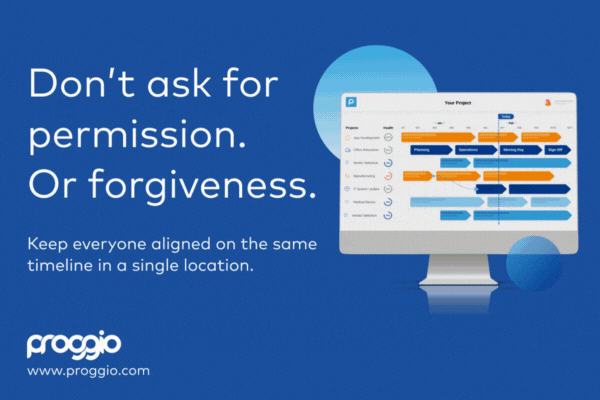Getting PM Training without Breaking the Bank
In these troubling economic times, companies are slashing their training budgets as a means of getting costs under control and more in line with dramatically-reduced revenues. Classroom training opportunities are being cancelled every day, with the excuse that tuition, travel costs, and lost productivity makes the whole exercise financially unviable.
Yet, project managers still need ongoing training. People new to the profession need basic training; new hires need training on specific company management policies, practices and systems; and experienced managers need ongoing training to keep their skills current as the processes and tools they use evolve over time. Without training, an organization’s capacity quickly diminishes, eroding the project delivery team’s ability to successfully deliver new projects. We cannot allow these training budgets to be cut any further; or we won’t be positioned well to take advantage of the economic recovery that will eventually come our way.
So, how do we balance the company’s need for cutting costs while still preserving training opportunities for our staff? Well, many companies are turning to remote training offerings as the compromise between these two extremes. Webinars, teleseminars, and e-courses are training offerings that eliminate travel costs and generally cost only a fraction of their classroom equivalents. On top of that, by breaking courses down into small bite-sized modules, students can choose which modules they need, reducing the amount of unproductive time spent sitting in a class reviewing material that the students already know.
Teleseminars are lectures and group discussions delivered on a group conference call over the telephone. Some of them have web interfaces where students can type in questions for the speaker or click a button to “raise their hand.” They are generally the cheapest of the three remote training offerings. Calls may be recorded allowing for later playback.
Webinars are like teleseminars that have a visual element. Often, these visuals exist as slides in PowerPoint or a similar application. As the teacher is presenting the slides, students can see them change automatically through a web-based online interface. The student view changes in synchronization with teachers. Many of these systems allow for online messaging (chat) between students or with the instructor. Some also have the ability for one participant to take notes that can be shared with the rest of the participants. Students hear the instructor speaking either over a telephone line or through their computer speaker or headset. In some systems, the students can even ask questions via their headset microphone.
The “poor man’s webinar” is a teleseminar where the PowerPoint presentation is distributed to participants in advance, and the students follow along with the teacher by manually switching slides as the teacher announces the slide changes.
E-Courses are online course modules with both audio and visual elements, typically without an instructor, that students can take at any time. This ability to take the course modules at any time is one of the most powerful features that distinguish this option from webinars, which are pre-scheduled events. E-Courses may also have tests, simulations, and other interactive features that can improve the learning experience.
Major project management training providers have been offering all three options for years, with more and more getting on the remote training bandwagon. Thousands of project management-related webinars and teleseminars take place each year. Some are free, while others have a registration fee. It pays to research the training provider. Many vendors of products offer webinars or similar events on general PM topics that are thinly-disguised advertisements for their products. Also, you tend to get what you pay for; meaning, free training often only gives very high-level overviews of topics where the real meat of the subject is delivered via follow-on offerings that have a cost associated with them. Training companies use these free training events as teasers to attract students who can sample the quality of their instructors. Some of the viewers will buy the follow-on training offerings.
Don’t get me wrong – many excellent inexpensive or free training offerings are available. For years, the PMI ISSIG (www.pmi-issig.org) has been offering top-notch webinars free to its members. Other non-profit groups such as the Project Management Association of Canada (www.pmac-ampc.ca) offer high quality but low-cost teleseminars and webinars. There is no comprehensive central directory of project management remote training providers, but a simple Google search will reveal many available offerings.
Don’t forget to leave your comments below

sbo365
… [Trackback]
[…] Find More to that Topic: projecttimes.com/articles/getting-pm-training-without-breaking-the-bank/ […]
Fryd disposable
… [Trackback]
[…] Read More to that Topic: projecttimes.com/articles/getting-pm-training-without-breaking-the-bank/ […]
Full Article
… [Trackback]
[…] Find More Information here to that Topic: projecttimes.com/articles/getting-pm-training-without-breaking-the-bank/ […]
pgslot
… [Trackback]
[…] Find More here on that Topic: projecttimes.com/articles/getting-pm-training-without-breaking-the-bank/ […]
u31 เครดิตฟรี 188
… [Trackback]
[…] Find More on to that Topic: projecttimes.com/articles/getting-pm-training-without-breaking-the-bank/ […]
Tankless Water Heater Repair Plumbers Near Me
… [Trackback]
[…] Read More Information here to that Topic: projecttimes.com/articles/getting-pm-training-without-breaking-the-bank/ […]